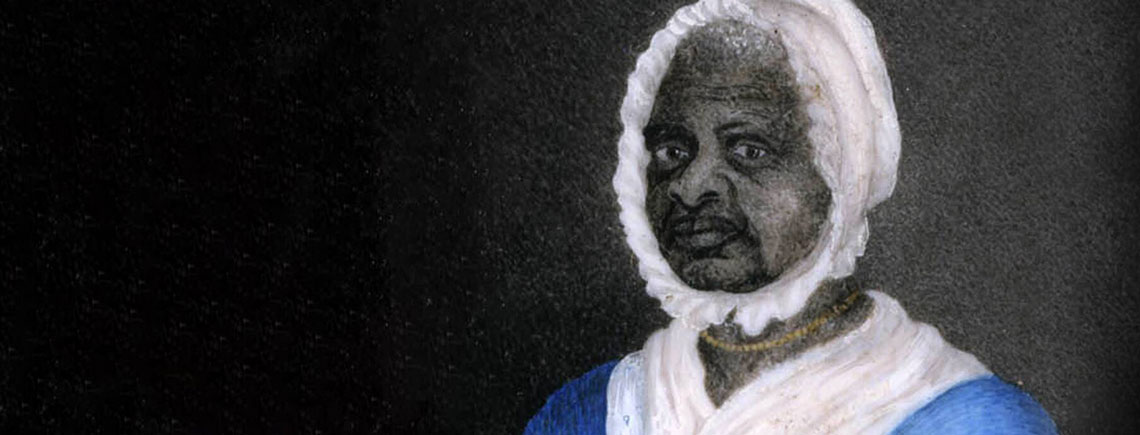Telling Black Stories
Visit the circular family plot of the influential Sedgwick family in Stockbridge and you will find only one grave not belonging to a family member. Buried within the confines of the prominent white family’s plot lies Elizabeth Freeman, a former slave whose quest for equality and freedom helped to end slavery in Massachusetts.
Freeman, who was harshly enslaved in the Colonel John Ashley house, was privy to conversation among eminent Colonists who gathered in Ashley’s study to gripe about the “shackles of slavery” put on them by King George III and the British Parliament. As she quietly served the men in Ashley’s study, they drafted the Sheffield Resolves, whose Lockean language about freedom and equality predated Jefferson’s Declaration of Independence by two years. They were oblivious to the real slave in their midst who was absorbing the spirit of their fiery arguments.
In 1781, Ashley’s wife, the ill-tempered Hannah Hoogeboom, struck Freeman with a hot fireplace shovel, permanently scarring her arm. It is said that the slave, known in the Ashley household as Bett, was protecting her child or sister when struck. Whatever its origin, the injury was the last straw. Bett left the household and implored attorney Theodore Sedgwick, author of some of the language in the Resolves, to help her gain her freedom.
Massachusetts slaves—there were some 5,000 in the state when the Revolution began—had had previous success in obtaining freedom in cases of abuse but Sedgwick took it a step farther. He reasoned that the new Massachusetts Constitution, written by John Adams, outlawed slavery.
Women in general and female slaves in particular had few rights so Sedgwick linked Bett’s case to that of Brom, a male slave owned by the Ashleys. He argued the case before the County Court of Common Pleas of Great Barrington. The jury agreed with Sedgwick that the Constitution did not allow slavery and freed both Bett and Brom, even awarding them 30 shillings and the costs of the trial. Ashley appealed but withdrew when a series of other “Freedom Suits” effectively ended in slavery in the commonwealth.
Bett took the more dignified name of Elizabeth Freeman but, as a valued paid servant in the Sedgwick home, was affectionately called Mum Bett, the name she is best remembered by. Sedgwick went on to become a U.S. Senator and State Supreme Court Justice.
This important slice of American history will be recalled this month in a series of events on the 241st anniversary of Freeman’s emancipation. The W. E. B. Du Bois Center for Freedom and Democracy will present a roundtable discussion on the life and legacy of Freeman with historians Kerri Greenidge, Sari Edelstein, Kendra T. Field and Frances Jones Sneed. They will use Freeman’s complex story to enter into a larger conversation about stories, silences and the ethics of African American public history.
The roundtable discussion will take place at 4 PM. at Dewey Hall, 91 Main Street, Sheffield and will be followed by a reception. For details, visit www.duboisfreedomcenter.org.
Other planned activities include Meet Elizabeth Freeman, a play by Teresa Miller, starring Wanda Houston to be staged Saturday, August 20th at 7:00PM in First Congregational Church of Sheffield. Seating is available in the church with satellite viewing at the Bushnell-Sage Library. It can also be livestreamed at home. There will be no seats available at the door the day of the play so reservations are advised.
On Sunday, August 21st, at 9:30AM, there will be a Walk to Freedom departing the Ashley House followed by the culmination of the weekend, an unveiling of a bronze statue of Freeman on the Sheffield Green near the Old Stone Store. The unveiling ceremony takes place at noon.
To reserve seats for the play or indicate participation in the walk, please visit the link below.


